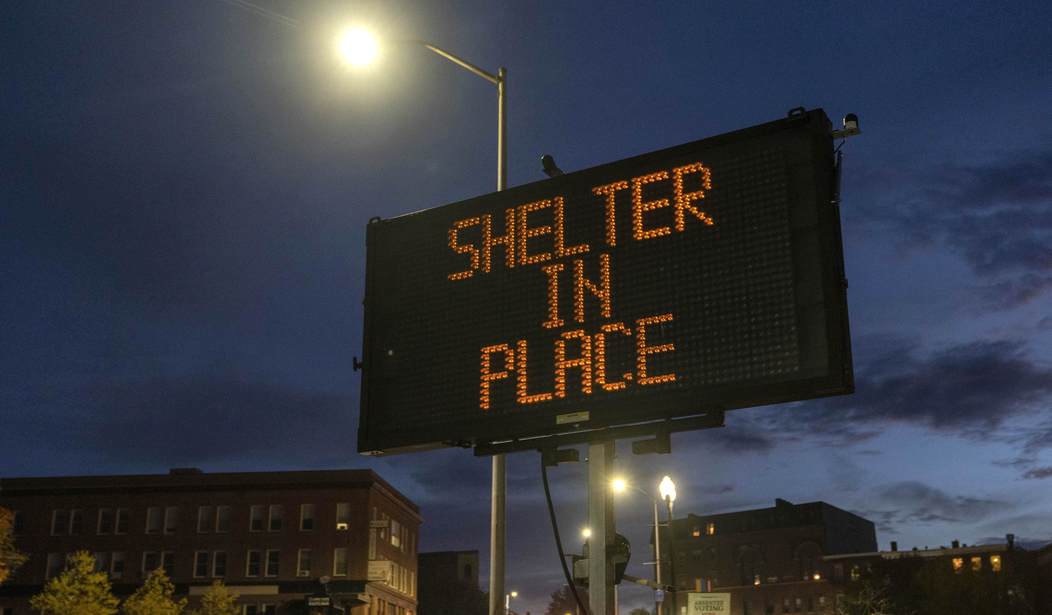The mass murder in Lewiston, Maine may not lead to more gun control at the federal level, but it’s sure to spark debate in the statehouse in Augusta when lawmakers return for the 2024 session in early January. Bans on so-called assault weapons and waiting periods are almost certain to be introduced, and we’ll likely see a push to replace the state’s “yellow flag” law with a measure that weakens due process protections.
There’s no evidence that anyone even tried to use the “yellow flag” law against the Lewiston killer, but that hasn’t stopped anti-gun activists and media commenters from decrying the supposedly weak statute that’s currently in place. Here’s one example from the Boston Globe.
Maine’s yellow flag laws work a lot like red flag laws, except there’s an extra step when it comes to how a gun can be confiscated from a person considered dangerous.
The yellow flag law requires a law enforcement officer to report possible confiscation of someone’s weapon to a judge, and additionally a medical professional must do a mental health evaluation on the gun holder in question. With red flag laws, you either need law enforcement or a family member to go to a judge, depending on the state, but a medical evaluation is not necessary.
The Sportsman’s Alliance of Maine’s executive director David Trahan told Maine Public Radio back in April that the gun rights group helped draft Maine’s watered-down version of “red flag” laws so that “due process” remained for gun owners.
But critics said it created yet another step in the way of getting firearms taken from those who shouldn’t have them in the first place. Everytown was one of the gun reform groups unsuccessful in implementing red flag laws in Maine, said Sam Levy, the advocacy group’s Northeast legal director. But what ended up passing in Maine, he said, made it “unusually difficult” to take a gun away from someone in a crisis situation, especially when it came to finding a doctor available to evaluate the gun owner.
Jack McDevitt, a professor at Northeastern University’s School of Criminology and Criminal Justice who was part of a task force responsible for drafting better gun reform laws in Massachusetts a decade ago, said it also isn’t a decision that law enforcement or medical professionals want to make, based on his research of shaping stricter gun laws in the commonwealth.
“The people who are most vested in someone not hurting themselves are the people closest to them,” McDevitt said. “They’re most likely to know someone is going through a difficult time. They’re also the people who care about the person the most.”
It shouldn’t be particularly easy to strip someone of their Second Amendment rights (or any others), and it’s telling that activists like Levy have a problem with a mental health professional being involved in the initial process to determine if someone is actually dangerous. Groups like Everytown much prefer a system without any mental health component at all; instead leaving it up to a judge to determine if someone is a threat to themselves or others based on one-sided testimony from the petitioner. In ex parte hearings the subject of the petition isn’t even aware that a hearing is taking place, much less allowed to present a defense, and even when they do get their day in court they’re not eligible for a public defender because an Extreme Risk Protection Order is a civil, not criminal, matter. If you can’t afford an attorney you’re on your own, though most “red flag” states use prosecutors to handle the ERPO petitions.
As we learn more about the warning signs and missed opportunities to intervene and address the declining mental health of the man responsible for the murders in Lewiston, it’s become clear that the issue isn’t Maine’s “yellow flag” law at all. Months before the shooting the killer spent weeks in an Army hospital because of his mental health, police were notified of his threats to shoot up an Army base in Maine, and his family had reached out to both the military and law enforcement with their own concerns. There was plenty of cause for the killer to have been involuntarily committed to a mental health facility, but according to the FBI he was not a prohibited person and would have passed a NICS check, even though he himself indicated that he’d been committed or adjudicated as mentally defective when trying to purchase a suppressor in August.
I guess we shouldn’t be surprised that the gun control lobby is using the horrific killings in Lewiston to weaken a law that was never used because they don’t like the due process protections that are a part of Maine’s “yellow flag” statute. They’re much better at exploiting tragedies than they are at actually reducing “gun violence”, and Lewiston is no exception.









Join the conversation as a VIP Member